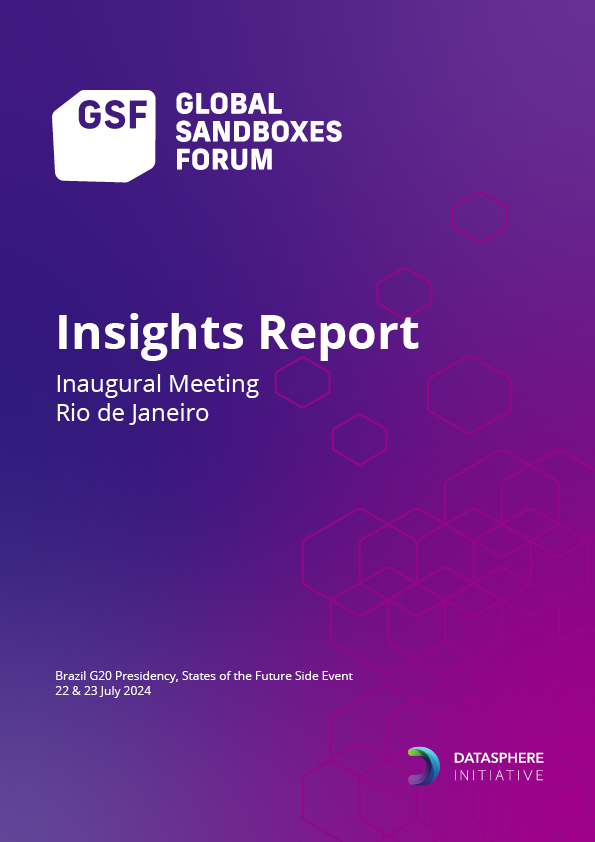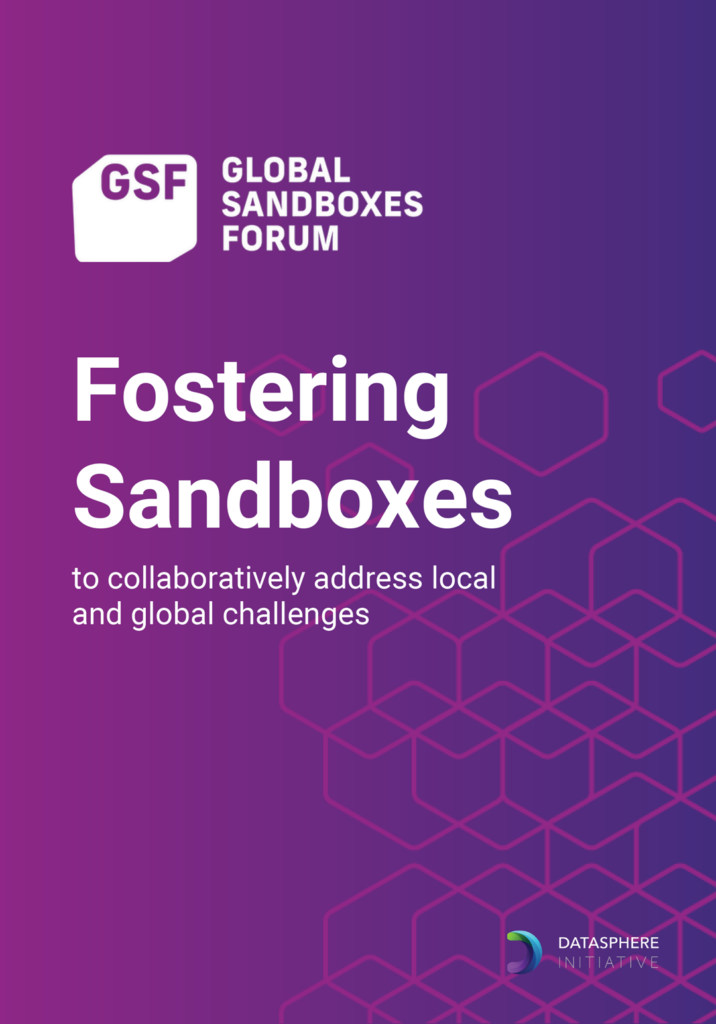Brazil’s G20 presidency has highlighted the need for policymakers to deal with data differently and rethink traditional modes of digital policy-making. It was therefore timely that government, private sector and civil society representatives met for an inaugural meeting of the Global Sandboxes Forum to share their expectations and vision for new models of data collaboration.
The Global Sandboxes Forum is a new ambitious effort led by the Datasphere Initiative that seeks to respond to pressing global challenges such as the climate crisis, the proliferation and governance of AI. From the report Sandboxes for Data: Creating Spaces for Agile Solutions Across Borders commissioned by the UK Government following their G7 Presidency (May 2022), to the Africa Forum on Sandboxes for Data, which catalyzed a pan-African community toward cross-border data exchange mechanisms supporting a single digital market by 2030, the Datasphere Initiative has become the primary organization advancing global digital cooperation through sandboxes.

“A Global Sandboxes Forum would offer meaningful, recurring and structured action across countries and regions for knowledge sharing, capacity building, and collaboration on sandboxes.” said Lorrayne Porciuncula, Executive Director, Datasphere Initiative.
Broadly speaking, sandboxes are testing environments where hosted data can be accessed and used (“operational”) or collaborative processes where regulators and firms evaluate new technologies within a regulatory framework (“regulatory”), or a combination of both. Speakers at the event showcased how sandboxes are becoming an increasingly important testing tool to identify and address challenges associated with emerging technology and showcased lessons from their implementation.
A few governments have already set up sandboxes to better understand the impact of potential regulatory frameworks. However, there is still a long way to go before sandboxes are fully embraced to help actually design data policy frameworks, especially in a cross-border regulatory context. Speakers at the event analyzed global issues and areas for cross-border cooperation that could be inspired by local and national uses of sandboxes and discussed three policy briefs on AI, Sustainability and a responsible sandbox assessment framework.
The discussions fostered connectivity between international partners and identified key areas where the GSF can be useful for the emerging community of sandbox practitioners now and in the future.
Elaborated in detail in this Insights Report, key findings include:
- While many governments understand the increasing need for new regulatory methods and investments in digital technologies and markets, they are still struggling to foster the innovative practices and enabling environments necessary to ensure digital transformation benefits society.
- Governments and the private sector have a growing interest in using sandboxes to tackle regulatory and operational challenges posed by digital technologies, however, knowledge, capacity and resources are limited and many would benefit from evidence and training.
- Case studies of sandbox applications are emerging across sectors and geographies but experiences are missing consolidation and robust analysis.
- Cross-border sandboxes could be helpful tools to tackle specific issues with international dimensions in the areas of AI and sustainability but for this to happen more trust and concrete prototyping is needed.
- Professionals from the public and private sector, academia and civil society working on sandboxes, would like a space to connect, collaborate and share their expertise with policymakers.
The Datasphere Initiative is gathering partners for the Global Sandboxes Forum with the intention to officially launch the work in 2025. Read more about the effort and how you can join the work here






